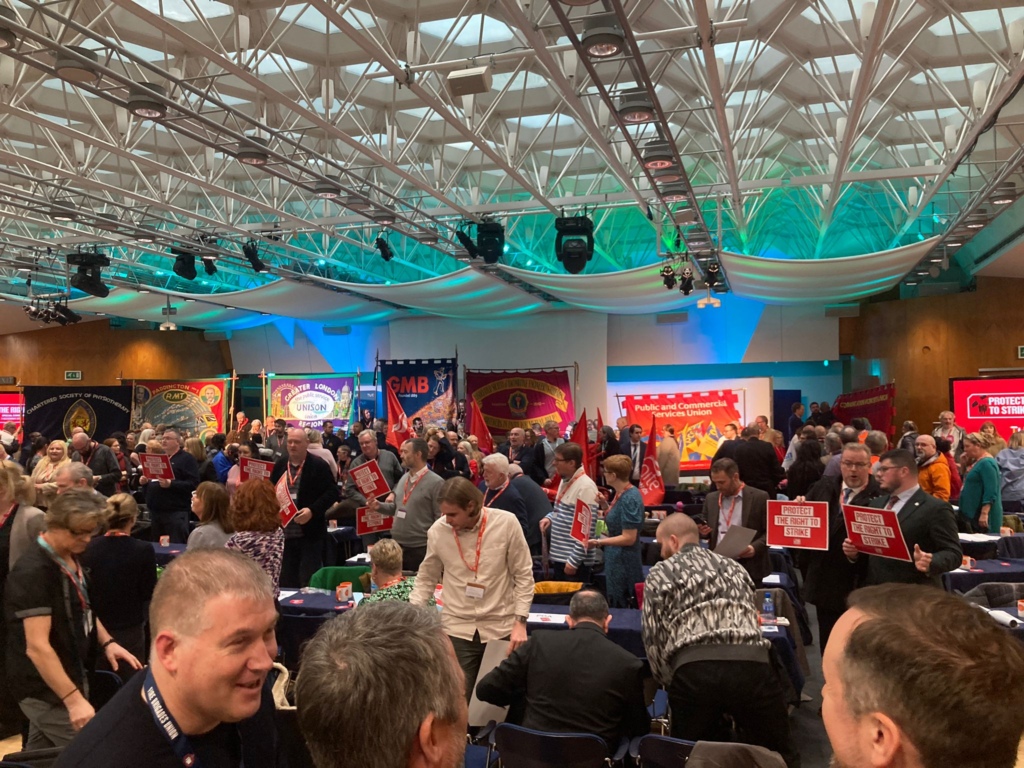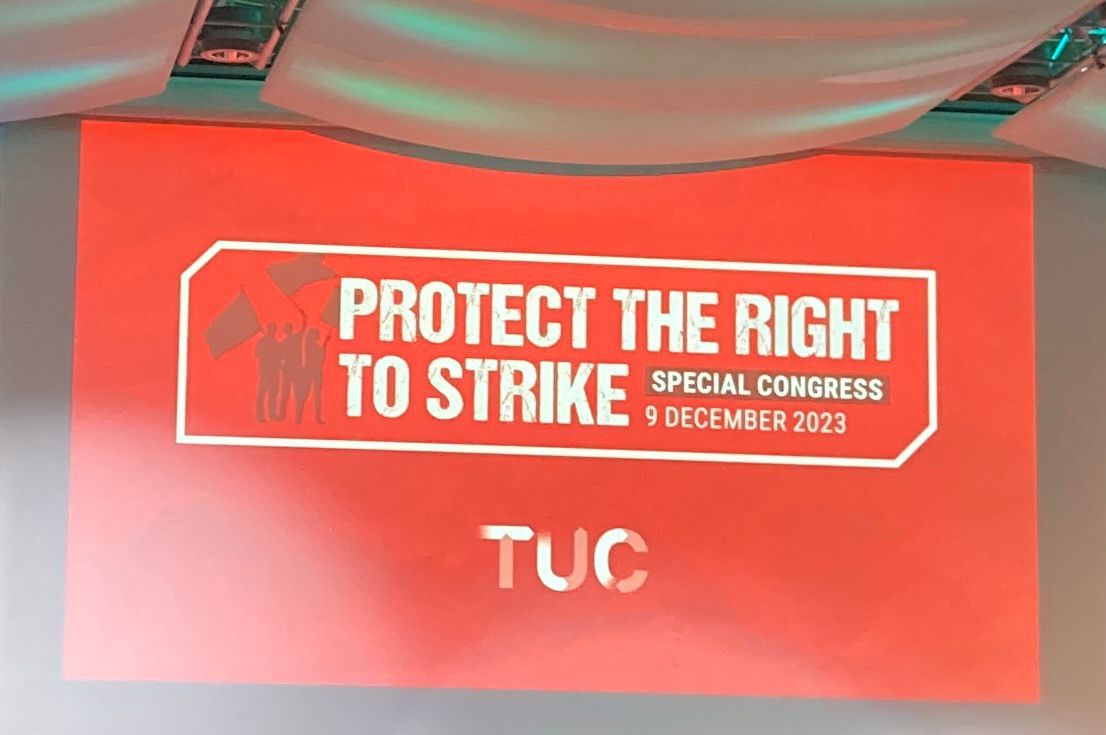For the first time in over forty years, the TUC held a special Congress. Its aim was to discuss the trade union movement’s strategy of opposition to the newly introduced minimum service legislation. UNISON general secretary Christina McAnea said the legislation made workers akin to “serfs” and “indentured labour”. The last special congress, held in 1982, aimed at derailing the initial anti-union legislation of the Thatcher government. This was acknowledged as a failure by TUC President and Fire Brigades Union General Secretary Matt Wrack, who opened Congress warning against “over promising”. So, what will be different this time?
In truth, it is hard to say. Paul Nowak, TUC general secretary, acknowledged that the trade union movement cannot afford to openly discuss all of its potential tactics in public. The reasons why are not only limited to keeping media hysteria about a general strike in check, keeping discussion vague and options open makes for a more united labour movement. This is not to say the event itself was totally dissent free. The FBU grumbled during their address that the motion to be voted on at the special Congress was not itself open to amendments from the congress delegations. Apart from this, the special Congress was a carefully orchestrated show of unity where (in true labour movement fashion) the real arguments had already taken place behind closed doors. Thus, the general council statement was a carefully worded compromise statement that, crucially, did not take anything off the table.
Some suggestions were aired, and it was acknowledged that different solutions would work for different disputes. For instance, one RMT speaker posited that being issued with a notice compelling them to work on a strike day could induce such anxiety in a worker that it would have a detrimental impact on their health and their union would have to advise them not to attend work on health grounds. Other potential legal obstacles were mentioned, such as the questions the legislation would raise for GDPR. The Royal College of Midwives pointed out that the legislation has not had its impact on equalities fully examined.
However, given the government’s current cavalier attitude to the law, it is not clear how much of a permanent solution legal recourse will grant. One consistent thread running through the suggested solutions was leveraging employers into not issuing work notices. This could take the form of locally agreed derogations in the health service, or by informing an employer that issuing a notice would, in the words of RMT General Secretary Mick Lynch, put this employer in “perpetual trade dispute”. Alongside repeated calls to build a mass movement of public opposition, there were also practical solutions suggested, including UCU general secretary Jo Grady arguing that the TUC should start trying to raise a multi-million pound fighting fund. The FBU also pointed to the importance of rebuilding the shop stewards movement.

One constant throughout the Congress was the trade union movement’s refusal to tell its members to cross their own picket lines, which brings into focus one of the known unknowns of the congress: to what extent will trade unions defy the law? Echoing her recent article, Sharon Graham, the Unite General Secretary, pointed out that the trade union movement “must be prepared to ask ourselves some very difficult questions” and that “real solidarity to push this back may take us outside the law”. While it is a certainty that the TUC will not condone operating outside of the law (the logic being that it cannot afford to have its assets sequestered in case it needs to provide haven for other unions undergoing this punishment), it is not impossible that some unions will at least attempt to bend the law. For instance, some of the unions with members whose skills are in short supply may be able to call an employer’s bluff when it comes to threats of dismissal, while others may be able to find more subtle ways around the legislation’s impositions. However, if this does happen, it is likely to be relatively self-contained and occur at a local level.
The other refrain across the Congress was the need for a Labour government to enter power and repeal the legislation. Since 2014 the Conservative Party has made it harder for trade unions to engage in politics, organise and call strike action, allowed agency workers to be used as strikebreakers (overturned on a technicality), and has now imposed minimum service levels. The longer it is in power, particularly while led by a petulant dweeb, the greater the threat to the trade union movement. However, as Andrea Bradley, the Educational Institute of Scotland general secretary pointed out, the SNP “despite the pro-worker rhetoric, uses all the anti-union legislation available”. As long as these levers remain, so will the temptation to use them.
The arrival of a Labour government is also about what can be created for the trade union movement. Barbara Plant, GMB President, was the first speaker to overtly reference Labour’s New Deal For Working People (copies of the latest version of pledges were available at the Congress), but several other speakers did so afterwards (including those from non-affiliated unions), with CWU General Secretary Dave Ward ending his speech with the declaration that “we’re going to kick the Tories out and we’re going to bring the New Deal for Working People in”.
Currently, the trade union movement is still in decline, as Jo Grady noted in her address, “unless you read the Mirror, you would probably not know this [Congress] is happening”. Labour’s New Deal, for all of its imperfections and clarifications, is seen by many (though by no means everyone) in the trade union movement as offering a lifeline. In the meantime, judging by this Congress at least, the trade union movement’s strategy appears to be to disrupt the implementation of minimum service levels as much as possible until Labour can enter power and repeal the legislation. The real test of this will come when the first worker is issued with a work notice compelling them to attend work; until then it remains unknown just what the sound and fury of this special Congress will come to signify.


